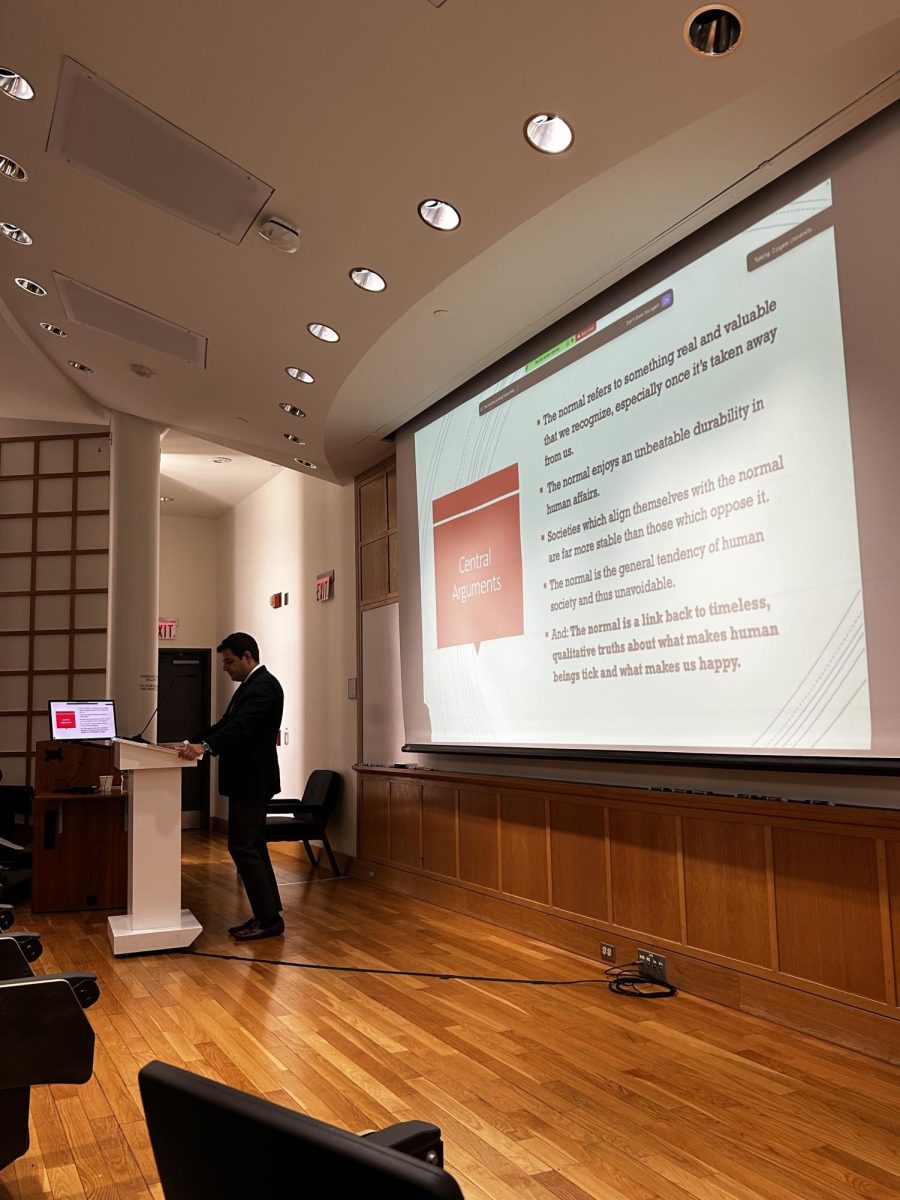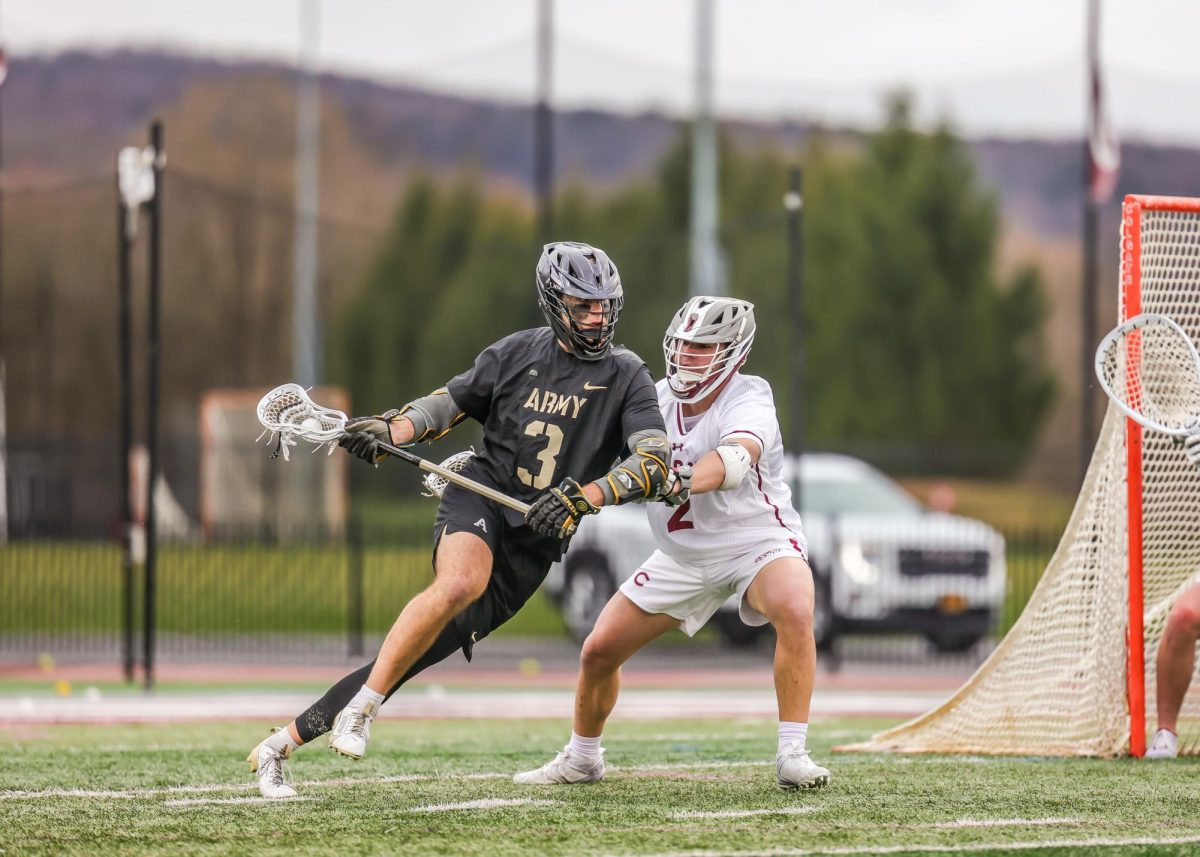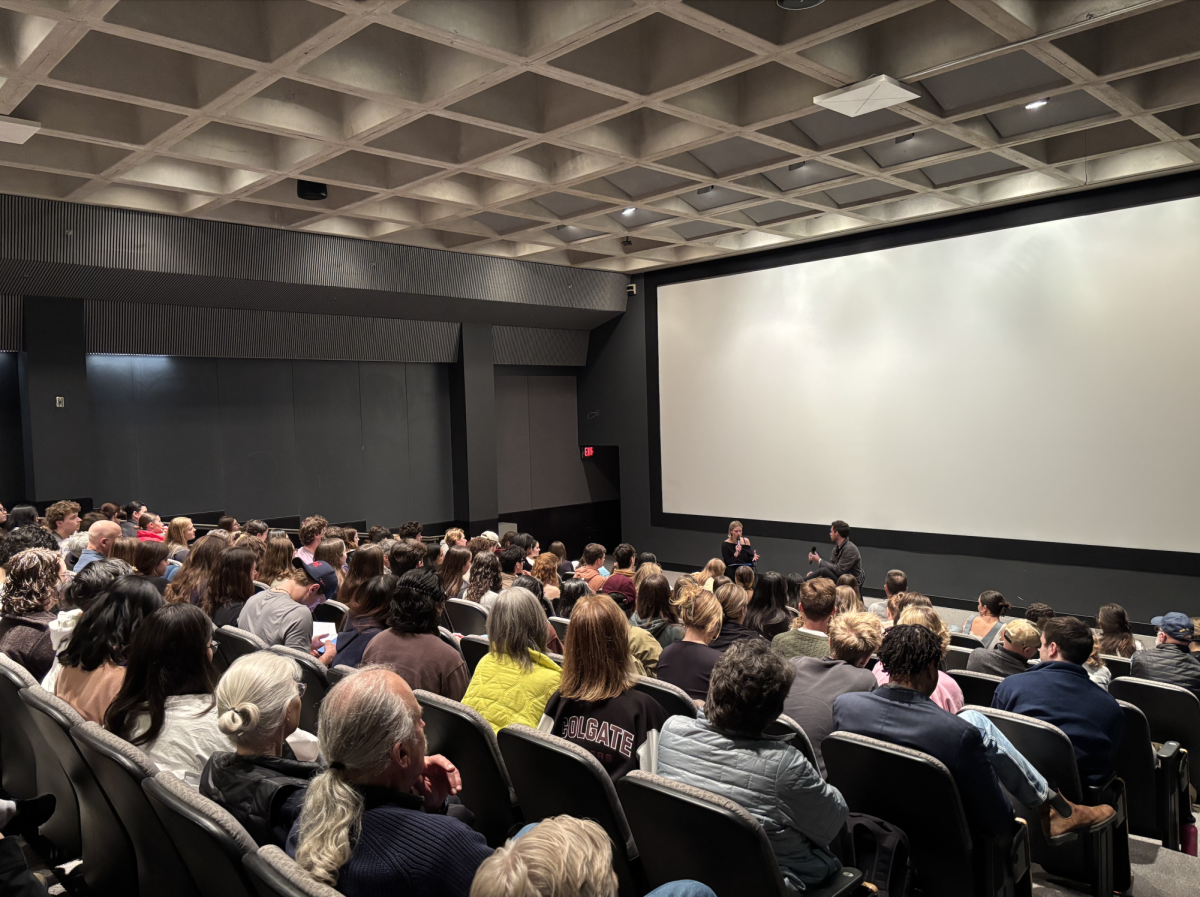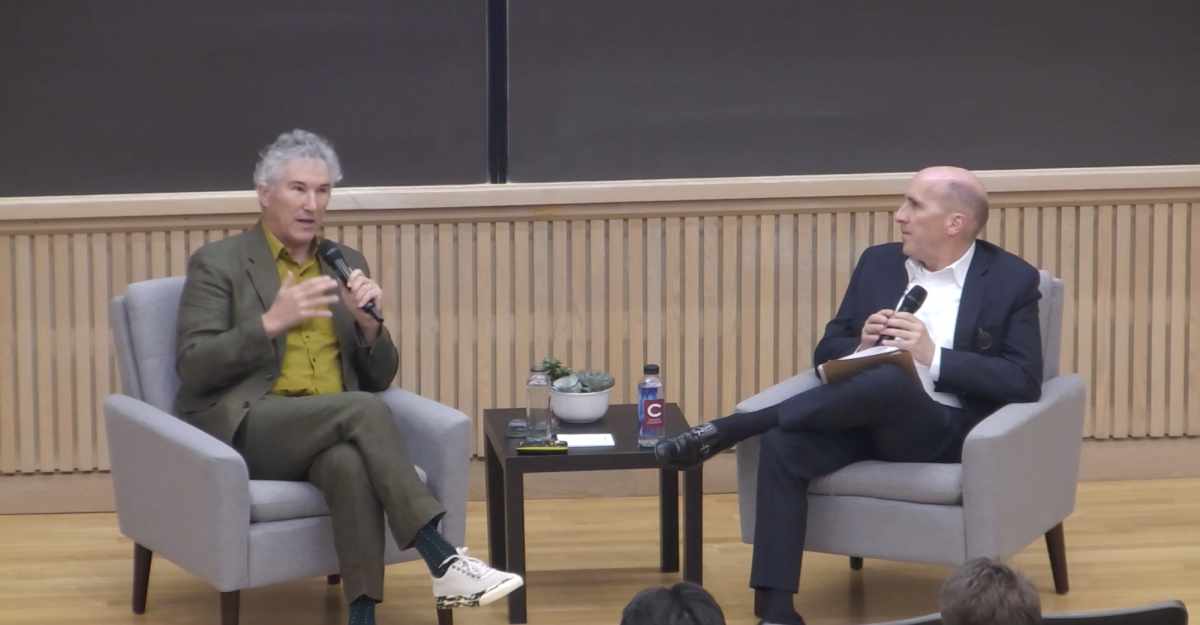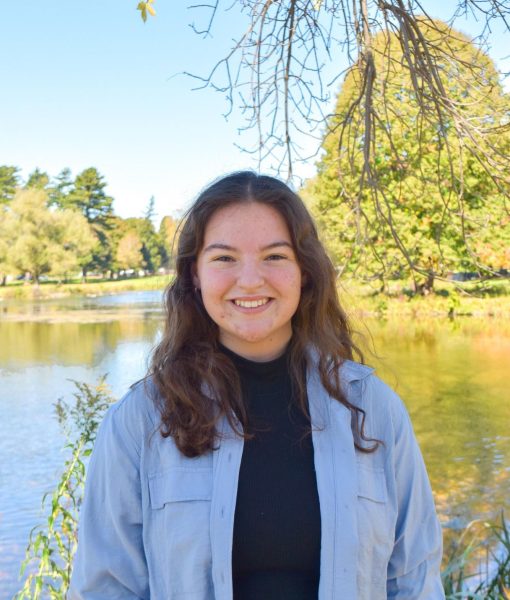Dr. Alexis Pauline Gumbs presented “Community Lessons from Marine Relatives,” an engaging discussion about Gumbs’ work as a “Queer Black Troublemaker,” on Thursday, April 18. The event was co-sponsored by the ALANA Cultural Center, Dart Colegrove Commons, Hancock Commons, the environmental studies program and women’s, gender and sexuality studies as a part of the Office of Sustainability’s 13 Days of Green series leading up to Earth Day.
Gumbs began the event by inviting the audience to participate in a breathing exercise with her before she read a passage from her book, “Undrowned: Black Feminist Lessons from Marine Mammals.” She introduced this passage about harbor seals as a meditation.
“Allow it to wash over you,” Gumbs said. “Before she goes underwater, the harbor seal will slow her heart, yes, from 120 beats per minute to three or four beats per minute […]. How can I learn this skill, to tell my heart: slow down, the pressure is coming?”
Gumbs then invited the audience to ground their bodies by finding their pulses. By using these activities, Gumbs hoped to make the audience present throughout her talk about love, colonialism and genocide with relation to lessons she has learned from marine life.
Gumbs was inspired to start writing about her knowledge of marine life when her dad passed away. Initially, she was not sure that she would ever share her work, but she knew she needed to devote her unwavering presence to something to overcome grief through love. Gumbs shared that her process for writing was to read from a book about marine life and focus on listening to how the book could apply to her.
Students and faculty attended the event to learn more about the application of sustainability in relation to their fields of study. Junior Emma Lewis heard about the lecture from a representative of Dart Colegrove Commons.
“Dart Colegrove Commons is co-sponsoring, and they thought I would like it,” Lewis said. “I’m interested in studying marine biology and sustainability in general.”
Following her talk, Gumbs invited questions from the audience. First-year August Haston was interested in Gumbs’ writing process because her writing style contains a blend of scholarly knowledge and poetic rhythms.
“Gumbs’ writing style is so conversational but balanced by an amount of scientific evidence that would be otherwise overwhelming,” Haston said. “She frequently uses apostrophes, and I had rarely seen that used in works on marine animals or scientific writing in general. It made her work really stand out to me.”
To learn more about Gumbs’ writing style, Haston asked Gumbs how she brings her authorial voice into talking about science. Gumbs found this question interesting because many scientific works are focused on demonstrating mastery. While she acknowledged the important role of many scientific texts, Gumbs responded to Haston by sharing her personal reasoning for mixing science and poetry.
“I’m writing about extinction, slavery and genocide,” Gumbs said. “I want there to be the intimacy of a conversation there […]. By the time you receive [my work], it should be something that is not blocking love in any way.”
While some might not immediately see the connection between a poetic exploration of colonialism and marine life, Gumbs finds that there are some fascinating connections. For example, Gumbs noted how the now-extinct Caribbean monk seal was killed by colonizers to exploit the oils their blubbers produced.
“They say the Caribbean monk seal, born black and proud, was never afraid of the colonizers,” Gumbs said. “The oil in the blubber of Caribbean monk seals literally lubricated the machinery of the plantation economy. Without it, nothing could function.”
Gumbs understands marine life in both symbolic and literal ways that she believes allow her to better connect with the world around her.


